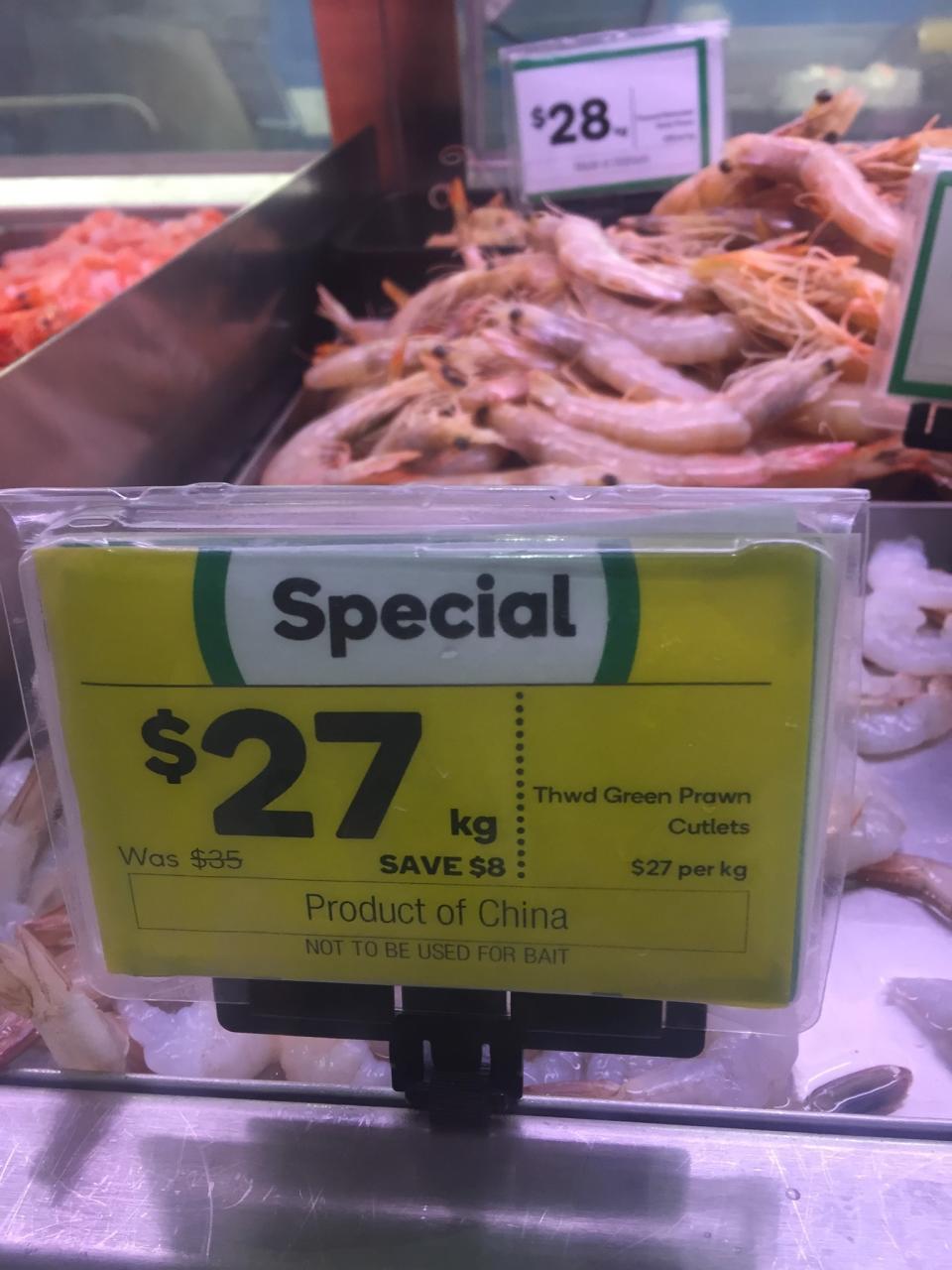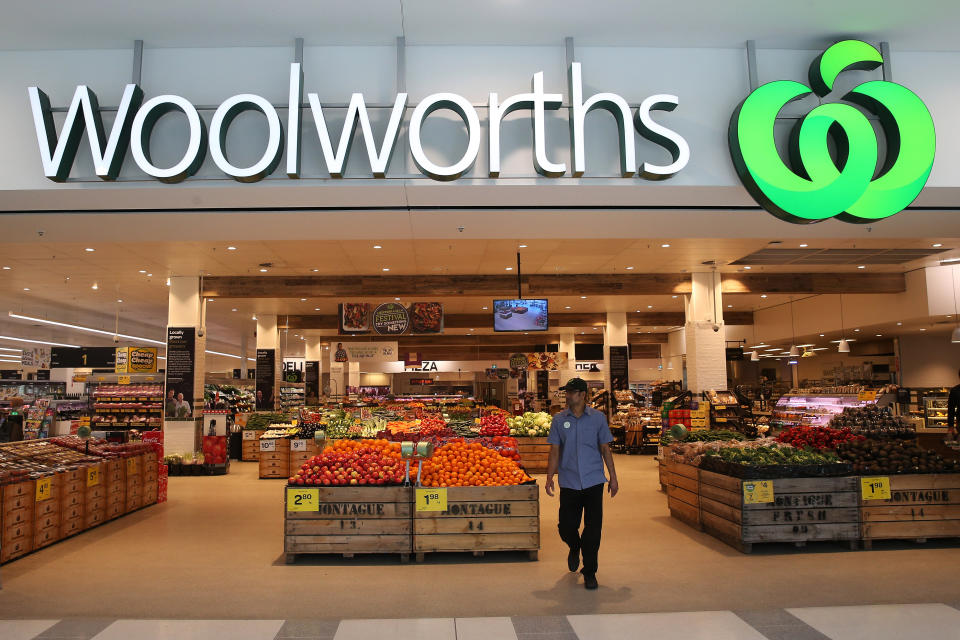'Shame on you': Why Woolworths shoppers are furious about supermarket's prawns
A single photo posted to the Woolworths Facebook page earlier this week prompted other customers to call on the supermarket giant to not sell imported prawns.
One person shared the photo of Woolworths’ thawed green prawn cutlets, with the sign indicating the prawns were a ‘Product of China’, adding the photo was taken at a Tasmanian store.
“Shame on you Woolworths,” the person wrote on one of their Facebook posts.
Then, others began sharing the same photo to Woolworths’ Facebook page and making posts about the imported goods.
“Not good enough Woolies,” another person said sharing the photo.
“Australian please.”

Woolworths did respond to many of the Facebook posts about the imported prawns, saying the company supports Australian prawn producers.
“Around three quarters of our prawn range behind our seafood counter is either wild caught or farmed locally in Australia and we're always looking to source more,” Woolworths said on Facebook.
“The importation of prawns are - quite rightly - subject to strict conditions and screening by the Department of Agriculture and we comply with these at all times.”
While there has always been a keen interest in buying locally sourced goods and Australian made products, Ben Lazzaro, Australian Made Campaign Chief Executive previously told Yahoo News Australia there had been a heightened interest in doing so in recent months.
Supermarkets work to ‘offer range of choices’ for consumers
Professor Gary Mortimer, from Queensland University of Technology explained there was a simple reason for importing products like prawns – to satisfy the needs of all customers.
“Ultimately supermarkets will want to offer a range of choices to consumers,” he told Yahoo News Australia.
“Some consumers, when we think about prawns, are very happy to pay $29 or $35 a kilo for farmed prawns or wild prawns and domestic products.
“But equally there will be those consumers that are looking for a value offer and would prefer to pay maybe $15 or $16 a kilo for an imported prawn.”

Prof Mortimer said of course this does not just apply to prawns, but products found in almost every aisle of the supermarket.
While imported prawns may be cheaper, Prof Mortimer said there are still “appropriate protocols” which need to be met.
“International food trade is not anything that is out of the norm,” he says.
“We [Australia] certainly export lots of food into other parts of the world, and equally, Australian supermarkets will also source globally produced products for an Australian market.”
Consumers were perhaps wondering why the sign also says “not to be used for bait”.
Seafood industry hit hard by pandemic
Veronica Papacosta, acting CEO Seafood Industry Australia (SIA) told Yahoo News Australia in a statement the industry had been impacted due to the pandemic, with export markets closing and necessary restrictions placed on the foodservice industry.
“Resilience and hard work will be the key to rebuilding our sector, but community support is essential to our immediate survival,” she said.
“We need the community to support us and eat Australian seafood.”
Due to the industry being disrupted the SIA launched their Eat Seafood Australia campaign and a Fish Finder directory.

“Our Fish Finder directory helps consumers find and purchase fresh or cooked Australian seafood online, or direct from retailers, for delivery or pick-up,” Ms Papacosta said.
“Meaning the community can support us without even leaving their couch.”
While retailers are required to have country of origin labelling on food, the SIA is however calling for more transparency in the food service sector, lobbying for the industry to follow the same regulations as the retail sector.
“There is nothing wrong with serving, ordering or eating imported seafood,” Ms Papacosta said.
“But, as an industry, we believe there needs to be better clarity of labelling so that consumers are provided with the same country of origin information in a restaurant or cafe as they are at a supermarket or fishmonger.”
Do you have a story tip? Email: newsroomau@yahoonews.com.
You can also follow us on Facebook, Instagram and Twitter and download the Yahoo News app from the App Store or Google Play.




